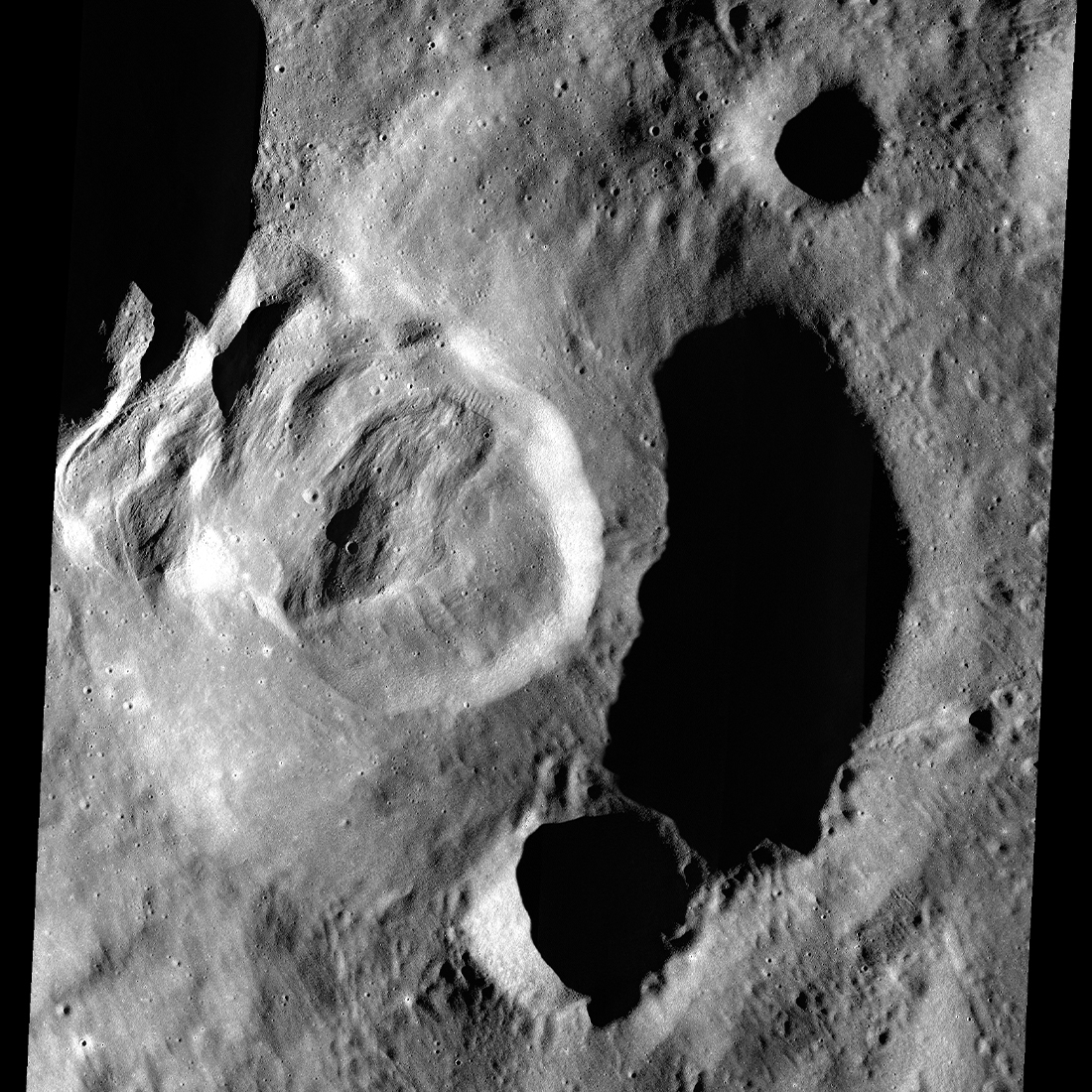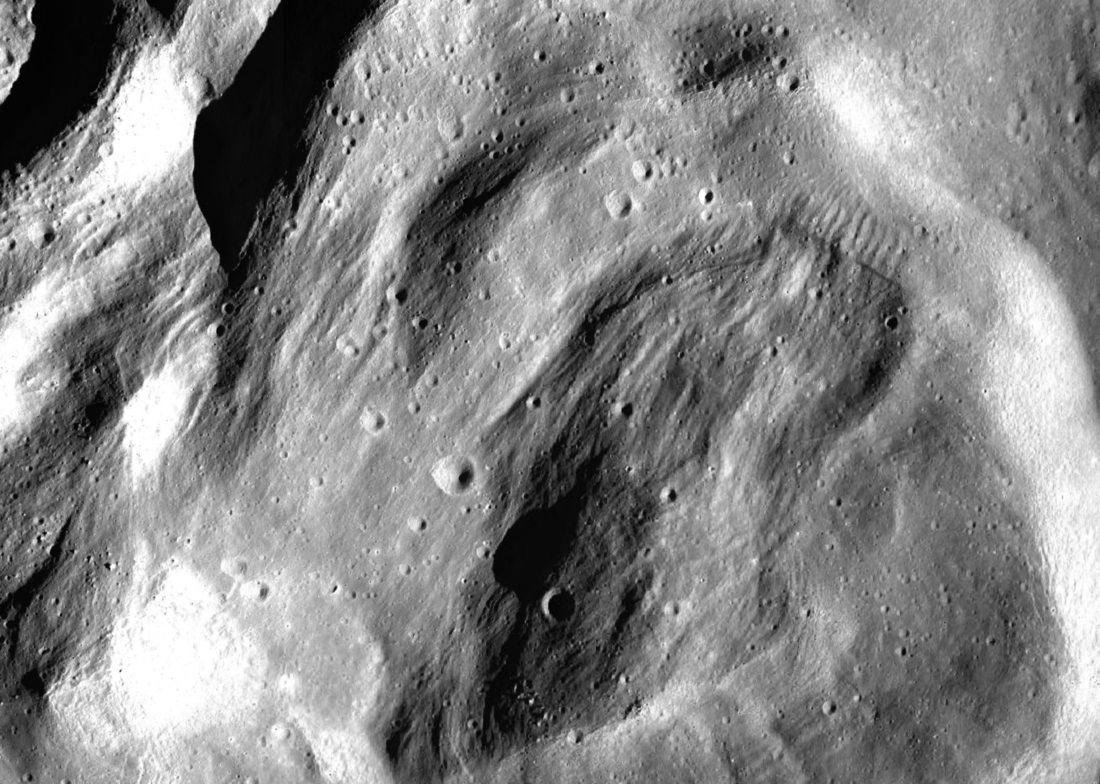
On the farside of the Moon, where the western wall of Klute Crater meets Klute W Crater, the wall appears to have slumped and fallen towards the crater floor. As a result of a nearby moonquake or surface impact event, at some point in this crater’s history, a geological process known as mass wasting was triggered.
After the degradation and erosion of the lunar surface over time, the material became loose. When this surface moving event occurred, the unstable debris was influenced by gravity and began to move down the sides of the crater.
Mass wasting is a common erosional process on the Moon and can be found in many places. With the LROC NAC (Narrow Angle Camera), we have imaged examples of mass wasting as large as the feature here in Klute crater or as small as boulders tumbling down the side of a hill.
Here mass wasting is dominantly manifested as large scale slumping, rather than a series of smaller indivdual slides, as seen in the case of Shubert A crater. Instead, we see parallel layers of debris squeezed together as the crater wall slumped to the bottom. Check it out in the photo below!

Zoom in and out of Klute Crater with the Zoomify below!
To learn more about mass wasting!
A Tangle of Talus
Banded Slump in Berzelius W
Slump or Slide
Post-impact modification of Klute W
To Learn more about Controlled Mosaics:
Featured Mosaics: Behind the Seams
Do you want to download Klute Crater for yourself?
Klute Crater
Published by Jessica Walsh on 26 April 2021